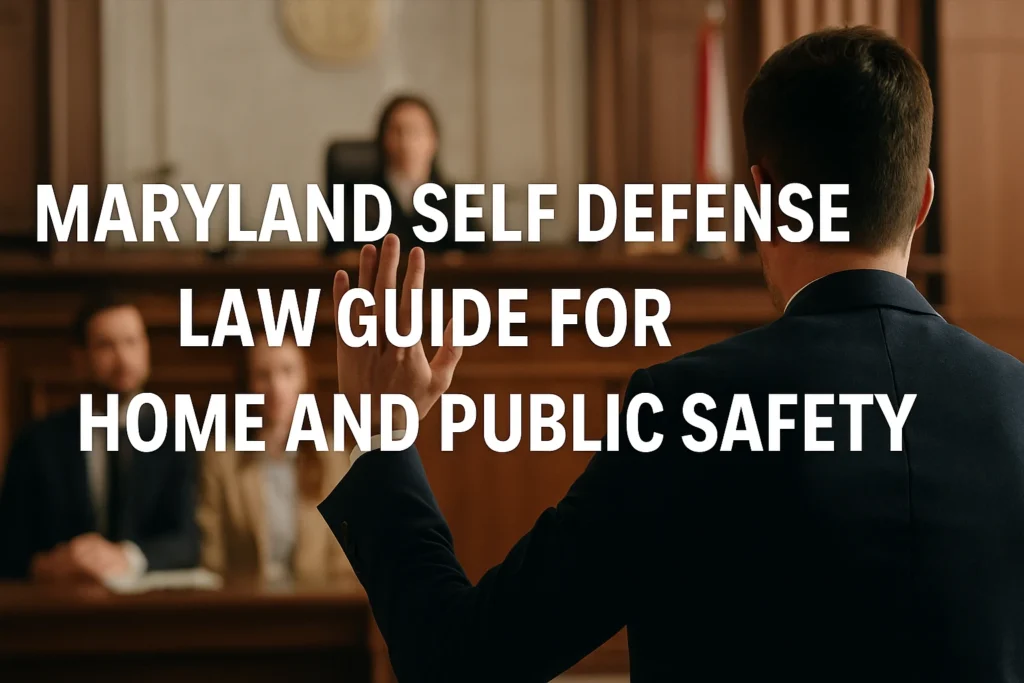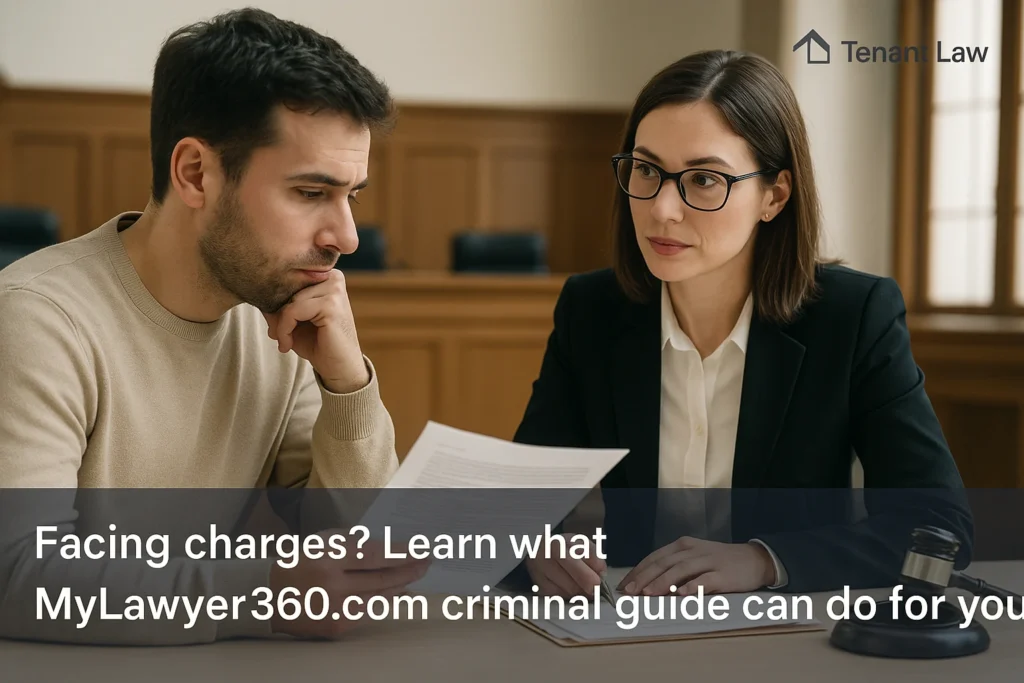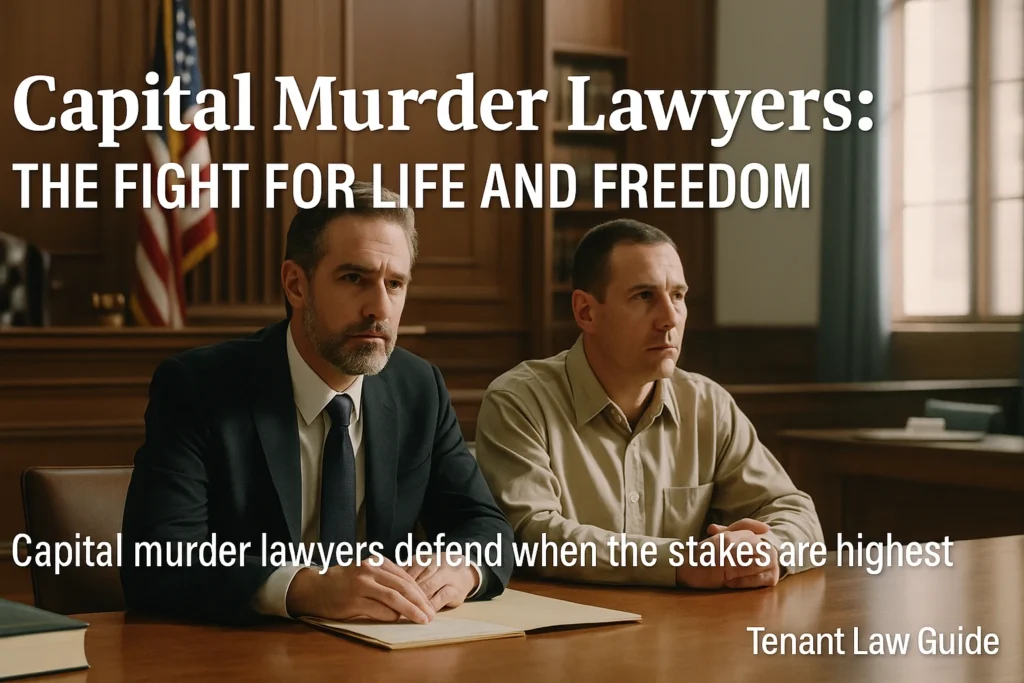Every person has the right to stay safe. In Maryland, the law supports that right but places limits. People often act fast in fear, but courts later take time to judge those actions.
The law does not rely on guesswork. It depends on rules, facts, and real danger.
Maryland follows common law. That means courts use old case decisions, not a single written code. This can make self-defense cases hard to understand.
Still, the rules aim to protect honest people who react in sudden danger. This guide breaks down those rules in plain English.
What Self-Defense Means in Maryland
Maryland self defense law allows a person to stop a threat. It means you can use force if you believe someone will hurt you. You must act in the moment. You cannot claim fear of a past event.
The threat must feel real and near. The person must believe they had no choice. But the court will ask if the belief made sense.
Was it honest? Was it something a calm person would also believe?
The court does not allow revenge. You cannot go after someone later and call it self-defense.
You also cannot claim self-defense if you caused the fight. The rules only protect those who try to avoid trouble.
Duty to Retreat in Public Places
Maryland expects people to walk away when they can. If someone threatens you in public, and there is a safe way out, the law says you should leave. This is called the “duty to retreat.”
You do not have to run from every situation. But you cannot stay and fight if escape is clear and safe. If a person ignores a way out, the court may say they chose violence.
Deadly force is a last step. It only becomes legal when no safe option remains. If someone blocks your path and raises a weapon, the danger is clear. In that case, you may defend yourself with full force.
No Stand Your Ground Law
Maryland does not follow “stand your ground” rules. In some states, people may fight back without trying to leave. That is not the rule here.
Maryland courts still want people to avoid fights if possible. If the law finds that you chose to stay in harm’s way, it may not protect your actions. That rule keeps people from starting violence under the excuse of defense.
This means every move matters. If you had time and space to step back, the court may ask why you did not. That question can shape the case against you.
Castle Doctrine at Home
The law changes when you are inside your house. In Maryland, you do not have to leave your home to stay safe. This is called the “Castle Doctrine.”
If someone breaks into your house and threatens you, the law lets you fight back. You do not need to find a back door or a place to hide. Your home is your space. You have the right to defend it.
Still, the court wants proof that the threat was real. If the person runs away or stops the threat, you cannot keep attacking. The law protects defense, not anger. Once the threat ends, the right to use force also ends.
Self-Defense in Business or Property
Maryland also supports defense in your store, office, or land. If someone walks in to rob or attack, the same rules apply. You may defend yourself, your staff, or your space.
But the law does not allow harm over small things. If someone takes a chair or sprays graffiti, deadly force is not allowed. The threat must reach a serious level.
If you fight back to stop violence, courts may protect your actions. But if you act too fast or hit too hard, the law may turn against you. That is why knowing the limits is key.
What the Court Looks For
Maryland courts study each case with care. They ask questions like:
- Was the person in danger?
- Did they fear for their life?
- Could they have left instead of fought?
- Was the force equal to the threat?
If the answers line up, the court may find the person acted within the law. However, if they see gaps or doubt, they may not allow the self-defense claim.
You must raise the issue first. That means giving enough facts to make the court think about it. After that, the state must prove you did not act in true defense. That rule gives balance. It protects the innocent and tests the guilty.
When Force Goes Too Far
Self-defense does not mean you can do anything. The law only allows the force needed to stop the harm. If a person slaps you, you cannot shoot them. That would be seen as too much.
The court studies the level of danger and the level of response. It wants to see control, not rage. If a calm person had done less, your claim may fail.
In short, the force must match the fear. If you lose control or try to punish, the law will not help you.
Guns and Self-Defense
Maryland allows guns under strict rules. But using a gun in defense brings extra pressure. Courts handle those cases with great care.
You must only fire if your life is at risk. That means real, present danger, not fear from the past.
If someone reaches for a weapon or tries to break into your home, you may act.
The law still asks you to think fast but fair. If the person runs away or stops the threat, the right to shoot ends.
If you go past that line, you may face charges. Even with a permit, your actions must stay within reason.
Protecting Others
You can defend other people, not just yourself. That includes your child, friend, or a stranger. The same rules apply. The threat must be real. The force must fit the need.
You must believe the other person faces harm. You cannot join a fight for fun or pride. The court wants proof that your goal was safety.
If you act from anger, the court may not accept your claim.
This law helps parents, teachers, workers, and good citizens. But it demands control, fairness, and truth. That keeps the rule from being used in the wrong way.
Defense of Property
The law also lets you defend your things. That includes your house, car, or land. But the force allowed here is low. You cannot kill someone to stop theft.
If someone steals your phone, you may try to stop them. But you cannot use deadly force unless they also pose a danger to you or others.
The law places more value on life than on stuff. That balance keeps people from losing their lives over shoes, bags, or phones. Courts want safety, not damage.
Civil Lawsuits After Self-Defense
Maryland law may protect you from civil claims if you acted in legal self-defense. This rule helps if you defend your home or business.
If you win the case, the person who sued may have to pay your legal fees. This rule comes from Maryland Code § 5‑808. But it only applies when your actions match the law.
You must show that the person entered without permission. You must also prove that you used fair force. If the court sees truth in your story, the law can block civil claims.
Real Case Example
In a key Maryland case from 1941, the court ruled that a person may act in self-defense if they truly fear harm. That case, Faulkner v. State, helped shape how courts judge belief and fear.
Another case, Crawford v. State in 1963, confirmed the Castle Doctrine. It said a person does not need to leave their home if attacked. That rule still stands today.
These cases remind us that each detail matters. A simple fact may win or lose a case. That is why people must stay calm, act fair, and follow the law.
What You Should Do Next
If you ever face danger, stay safe first. Once the threat ends, the legal process begins. Your actions will come under review. Be honest. Tell the truth.
If you face charges, speak to a defense attorney. Do not rely on what friends say or what TV shows show. Real courts follow rules. A good lawyer will explain those rules and help you build a strong case.
Learn the law before you need it. Know your rights. Understand your duties. That way, you can protect your life and your future at the same time.
People Also Asked Questions
What is Maryland self self-defense law?
It is the legal right to use force to protect yourself from harm, with clear rules on when and how much force is allowed.
Does Maryland have stand your ground laws?
Maryland requires you to retreat if you can safely escape, unless you are inside your home.
What is the Castle Doctrine in Maryland?
This rule says you do not need to retreat in your home and can defend yourself against an intruder.
Can I use deadly force in Maryland?
Only if you face a real and serious threat and have no safe way to escape.
What if I defend someone else?
You may help others if they face danger, but your actions must be fair and based on a real threat.
Final Words
Maryland’s self-defense law offers protection, but only to those who use it the right way. The law does not reward anger, pride, or panic. It helps people who face danger and act with care.
Stay alert. Know your space. Keep control. In Maryland, those who respect the law can also rely on it. That is the power of knowing where you stand and how far you can go.
Disclaimer: This article gives general information, not legal advice. Speak with a licensed Maryland attorney about your specific case.



